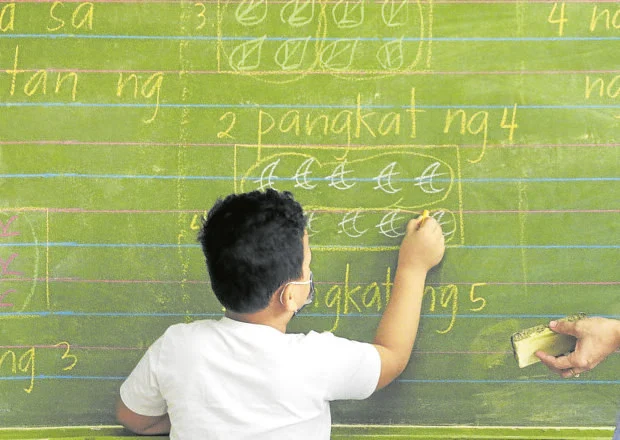‘Mass promotion’ hurts learning quality – PBEd
MANILA, Philippines — Basic education students are “not truly learning but merely progressing” through the school system, according to a report by the Philippine Business for Education (PBEd) which linked the “unofficial” policy of mass promotion to poor learning outcomes.
“Without a strong foundation in education, our workforce becomes less competitive on the global stage. It hinders innovation, productivity, and economic growth, limiting our potential for progress and prosperity,” PBEd executive director Justine Raagas said at Monday’s launching of the private sector-led advocacy group’s 2023 State of Education Report.
Its findings were based on consultations with over 300 stakeholders nationwide composed of teachers and school leaders (45 percent), government officials (24 percent), parents (14 percent), students (12 percent), and industry experts (4 percent).
According to Raagas, there is an apparent misunderstanding among participants about the concept of “No child left behind” which “led to the literal practice of passing students” or promoting them to the next grade level regardless of their competencies.
“Participants across all education sectors were in unanimous agreement that one of the underlying causes of poor student learning outcomes was the unspoken but common practice of automatic or mass promotion,” she said.
Raagas noted that despite the lack of an official and written policy from the Department of Education (DepEd), the practice has been “culturally and administratively ingrained” in the country’s education system, resulting in the erroneous association of learner outcomes with performance-based bonuses for teachers or a school’s standing in regional rankings.
Indirect pressure
In turn, this “flawed connection” puts “indirect pressure” on teachers to pass or promote their students to the next grade level.
“What normally happens is that there are efforts to kind of bridge the gap but what happens is that students are given extra work to comply with. Once this extra work is complied with, they are promoted to the next grade level … regardless of their grades and their competencies,” Raagas said.
She noted that the practice of mass promotion had been going on for a long time and even students themselves were aware that it was happening.
“In fact, there are many anecdotes from teachers of students blatantly disregarding their work or copying answers or worse, just easily giving up and saying, ‘It’s okay. I’m going to pass anyway,’” Raagas said.
She stressed that aside from resulting in a failure to master basic fundamentals such as reading, writing, and numeracy, mass promotion also caused unintended behavioral issues as students were lacking in fundamental values such as hard work, resiliency, teamwork, and respect.

